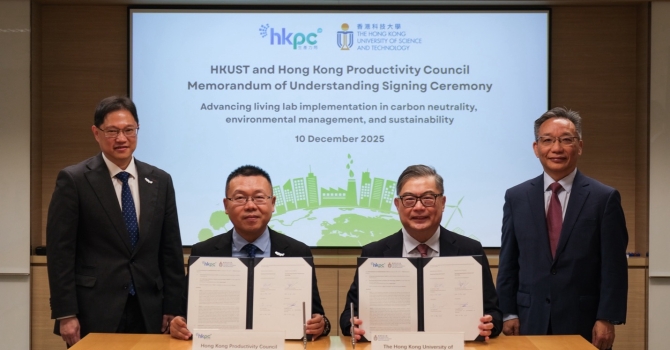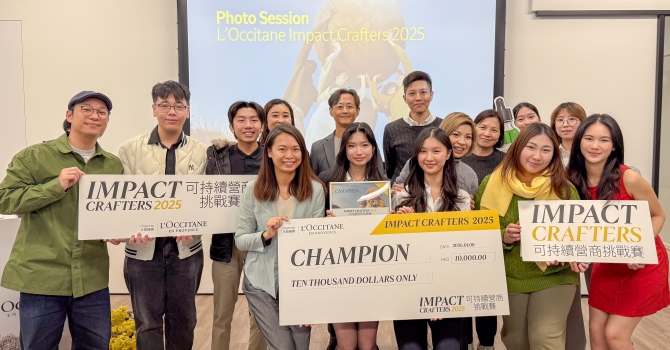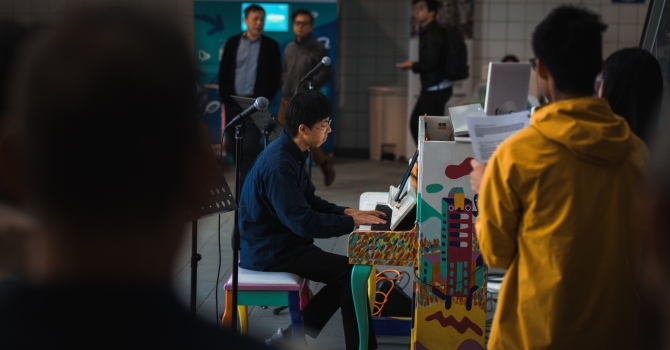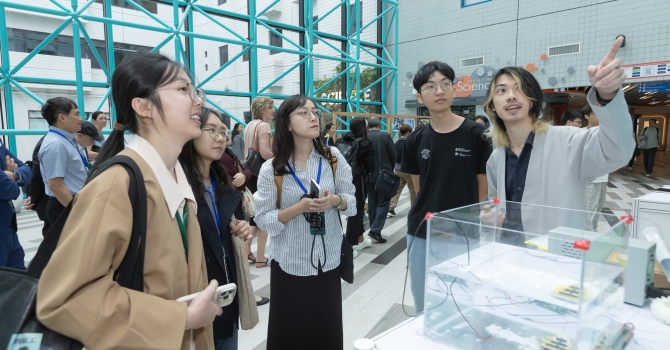Ingredients of sustainability in our Campus Canteens
In December 2021 HKUST was pleased to accept an award from Food Made Good (FMG), a leading voice in the food and beverage industry promoting sustainable practices and serving as a trusted resource for businesses that are transitioning to sustainable practices. HKUST was entered into the “Landlord” category since we have over a dozen outlets on campus, overseen by the Campus Services Office. However, we are not just landlords; we are also instruments of change and use our influence to encourage our tenants to adopt sustainable practices, like capturing food waste and recycling kitchen materials. FMG recognized these efforts, and we were pleased to accept the award on behalf of all the great work of our extended campus community.
The commitment to sustainable catering practices is part of our larger sustainability master plan called the HKUST 2028 Sustainability Challenge, where among other goals, we aim to reduce overall waste to the landfill by 75% by 2028 as compared to the baseline in 2014. Since food waste accounts for almost 40% of municipal waste on campus, HKUST actively places a strong emphasis on waste reduction derived from its F&B facilities.
HKUST closely collaborates with Campus Services Office, catering outlets and food waste contractors. Upon the new addition of centralized dishwashing facility and dehydrating system, new F&B tenants are compelled to separate and recycle waste. Staff motivation is also a key in driving outlets and teams towards the reduction goal. All the catering staff are provided extensive training about food waste separation and recycling to keep them invested and educated.
Every day our food waste is transported to an organic resources recovery centre called O-Park1 located at Siu Ho Wan of North Lantau.
As a leading university in Asia, HKUST understands that attaining sustainability goals requires a systemic approach to integrate technology and data. Thanks to the Sustainable Smart Campus as a living lab (SSC) funding, a pilot research project is being carried out by faculty and students. Cameras have been installed above bins, food picking counters and tray returning area in the LG1 canteen. The team employed advanced AI framework, computer vision, and big data technologies to build an intelligent system to derive accurate information about the quantity and temporal pattern of food waste for different food categories, as well as other relevant food waste patterns in our dining halls. The team is leveraging consumer behavioural insights to optimize food waste reduction.
From being vigilant about food waste collection and recycling, to data collection, analysis and monitoring, HKUST sustainability initiatives are braided into HKUST’s values. Attaining our ambitious actionable reduction goals is a challenge. Engagement with every member of this community, a pioneering spirit with technological innovation at its core and commitment to drive sustainable behavioural change. It is a recipe for a sustainable and sustainable campus.
To learn more about the food recycling system in catering outlets, check out our video by clicking here.



